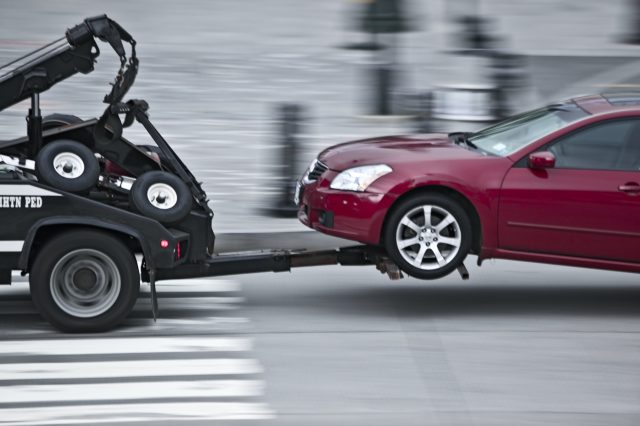Having to make some hard financial decisions, you let the car payment slide one month, thinking you’ll make it up the following month. However, the moment that due date passes, your car becomes eligible for a repo.
A couple of weeks later — pushing a cart out of the grocery store with your children in tow — you go to the spot where your car was parked, and it’s gone. After getting over the shock, you resign yourself to the loss and Uber home.
However, repossession is just the beginning, there are other consequences of that unpaid debt to consider as well.
What Is Repossession?
Car loans are known in the financial industry as secured debt. Your obligation to repay the lender is secured by their ownership of the car until the loan is paid off. Should you miss a payment, the lender reserves the right to send someone to take it from you. This act is known as repossession.
In essence, the lender is taking back that which is lawfully theirs.
In most cases, they don’t even have to inform you before they send someone to retrieve the car. You’ll walk outside and it will be gone. By the way, this applies to any asset you offer as security (or collateral) in exchange for a loan. This can be real estate, jewelry, works of art, or any other item of value equal to or exceeding the amount of the loan.
Generally speaking, once an item is repossessed, there is very little the borrower can do to reinstate the loan. The key is to get out in front of the process when you’re having financial problems and work out a deal with the lender.
Typical Consequences
You might think the debt is satisfied once the property has been seized, but that is usually not the case. The lender will usually sell it at auction, where it will go for a wholesale price, rather than retail. This generally won’t be enough to satisfy the loan, so you’ll still be responsible for paying off the balance.
What’s more, the lender can impose storage fees for keeping the property until it is sold. You could also be held responsible for the fees associated with sending someone to retrieve it. Further, there could be late fees as well as additional interest payments to consider because the loan went delinquent.
Avoiding a Repossession
As we mentioned above, the best way to avoid this is to get in touch with your lender before you miss that first payment. Let them know things are tight and you’d like to work something out.
In most cases, they’ll be amenable because a repo takes time and money. Plus, when all is said and done, they’ll only get a fraction of what they’re owed if you default altogether and file bankruptcy. Working with a debt negotiation firm can also be productive as they can help you find a strategy by which you can satisfy your debts and keep the car.
Just be careful to do your due diligence and look for information like these Freedom Debt Relief reviews to make sure you’re working with a solid organization. Here, it’s important to note while debt settlement typically doesn’t work for a secured loan, these companies can negotiate loan consolidation and debt management agreements that can help you keep your property.
Again though, the key is to enact these steps before repossession and the other consequences of unpaid debt are set into motion.
These things can be very difficult to unwind once they get rolling.
To read more on topics like this, check out the money category













